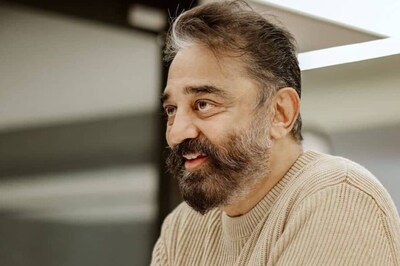
views
Johannesburg: South Africa will not reduce the 10-day isolation period for Omicron-infected health workers to make available medical staffers to attend to the increasing number of hospitalised patients, Health Minister Joe Phaahla said. This is a matter that has been concerning us. We are comfortable now that the numbers have not been rising as steeply as we had feared in the beginning (of the current fourth wave), Phaahla told reporters on Friday.
Most of (the health workers) are vaccinated and even if they have symptoms, they last for a very few days but they isolate for 10 days, he said, adding We can’t really say they should reduce the isolation period. We just have to find ways to manage the staff rotation because otherwise there will be a risk because even if you are infected, even if you don’t have symptoms or have mild symptoms and if you return to a work environment quickly, you will be a risk to patients and also to your colleagues, Phaahla said.
Reacting to queries on whether a higher lockdown was imminent because of the mass migration of people over the holiday season that starts next week, Phaahla said there were no immediate plans for this. The National Corona Virus Command Council will be meeting next week, either on Tuesday or Wednesday and will make recommendations. We will depend also on recommendations from our Ministerial Advisory Committee (MAC), so we are not in a position at this stage as to what kind of changes to Level One (there might be), the minister said.
South Africa is currently on the lowest Level One of its five-level lockdown strategies. Despite soaring infection rates, President Cyril Ramaphosa said a fortnight ago that the current restrictions would remain in place to avoid further irreparable harm to the economy. He also said a large number of people with vaccinations would reduce the severity of Omicron infections.
We will be looking not only at the numbers but also at the impact on the health facilities and all those risks and the economy and social activities in society. We will also get input from the MAC on social behaviour, Phaahla said. The social behaviour referred to is continued disregard by many people of social distancing measures such as avoiding large gatherings and wearing masks, as well as a sizeable anti-vaccine lobby by people citing personal or religious objections.
Ramaphosa has tasked a team led by Deputy President David Mabuza to investigate whether mandatory vaccines should be implemented, but this has already sparked conflict between labour unions and employers who have set ultimatums to their staff to get vaccinated or face disciplinary action. Phaahla confirmed during the briefing that the Omicron variant has now surpassed any reproductive rate of previous variants since the pandemic started almost two years ago.
The reproductive number of the (Omicron) virus, which shows how many people are likely to be infected by one person, is currently 2.5, which is higher than it was at any prior point in the pandemic. So, whether we speak about the Alpha, the Beta, or Delta, none of them had even reached close to two in terms of the reproductive rate, Phaahla said.
Disclaimer: This post has been auto-published from an agency feed without any modifications to the text and has not been reviewed by an editor
Read all the Latest India News here




















Comments
0 comment